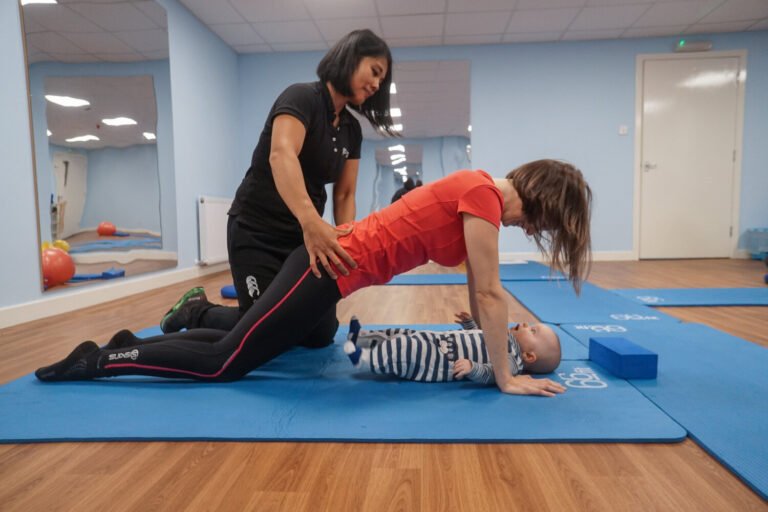Women's Physiotherapy: Postnatal Pelvic Power
Welcoming a new baby into the world is a joyous experience, but it also comes with significant changes to a woman’s body. Postnatal recovery is essential for new mothers, particularly when it comes to restoring pelvic health. Women’s physiotherapy plays a crucial role in helping new mothers regain their strength and confidence. In this article, we’ll explore the benefits of postnatal physiotherapy and provide essential tips for enhancing pelvic power.
Understanding Postnatal Pelvic Health
Pregnancy and childbirth can weaken the pelvic floor muscles, leading to various issues such as incontinence, pelvic pain, and even pelvic organ prolapse. Women’s physiotherapy focuses on restoring the strength and function of these muscles, which are vital for bladder control, bowel movements, and sexual health.
The Role of Women's Physiotherapy
During a consultation, your women’s physiotherapist will assess your pelvic floor strength, flexibility, and coordination. Based on your needs, they will develop a personalized plan that may include:
- Pelvic floor muscle exercises (Kegels): These targeted exercises strengthen the muscles that support your bladder, uterus, and bowels, improving control and reducing leakage.
- Manual therapy: Techniques like massage and mobilization can help ease pain and stiffness in the pelvic floor muscles and surrounding areas.
- Lifestyle modifications: Your physiotherapist may recommend adjustments to your daily activities, such as lifting techniques, posture correction, and core strengthening exercises, to further support your recovery.
- Biofeedback: This helps you learn to identify and control the contractions of your pelvic floor muscles for improved control and coordination.
Benefits of Women's Physiotherapy for Postnatal Recovery:
- Reduced Incontinence: Strengthened pelvic floor muscles can significantly improve bladder control, helping you prevent leaks and regain confidence.
- Diminished Pelvic Pain: Whether you experience discomfort during intercourse or general pelvic aches, Women’s Physiotherapy can address these issues, promoting pain relief and improved quality of life.
- Faster Postpartum Recovery: Physiotherapy can accelerate healing and minimize discomfort after childbirth, allowing you to focus on bonding with your baby.
- Improved Core Strength: A strong core is essential for good posture, back pain management, and overall well-being. Women’s Physiotherapy incorporates core strengthening exercises into your recovery plan.
- Enhanced Sexual Function: Weakened pelvic floor muscles can negatively impact sexual satisfaction. Women’s Physiotherapy can improve blood flow to the area, increasing arousal and enjoyment.
Who Can Benefit?
Every woman who has given birth can benefit from Women’s Physiotherapy, regardless of the birthing method (vaginal or cesarean). Even if you’re not experiencing any specific issues, it’s a proactive approach to maintaining pelvic health and preventing future problems.
What to Expect During a Women's Physiotherapy Session:
A typical session will involve:
- Comprehensive Assessment: Your physiotherapist will discuss your medical history, symptoms, and lifestyle. This helps create a personalized treatment plan.
- Pelvic Floor Muscle Training: You’ll learn Kegel exercises and other targeted exercises to strengthen your pelvic floor.
- Manual Therapy: Techniques like massage and mobilization can be used to improve circulation, address pain, and release tension in the pelvic muscles.
- Education and Self-Management: Your physiotherapist will educate you on proper posture, lifting techniques, and pelvic floor care practices for long-term health.
Conclusion
Women’s physiotherapy is a vital component of postnatal recovery, offering numerous benefits for new mothers. By focusing on pelvic floor health, alleviating pain, and enhancing overall well-being, postnatal physiotherapy empowers women to regain their strength and confidence.
Reclaiming your pelvic power after childbirth is possible with the help of Women’s Physiotherapy. Take charge of your health and well-being, and enjoy a stronger, more confident you!
FAQs
Q: When should I start Women’s Physiotherapy after childbirth?
A: You can begin as early as 6 weeks postpartum, after consulting with your doctor.
Q: How many sessions will I need?
A: The number of sessions depends on your individual needs and goals. Typically, a course of 6-8 sessions is recommended.
Q: Is Women’s Physiotherapy covered by insurance?
A: Some insurance plans cover Women’s Physiotherapy. It’s best to check with your provider to determine your coverage.


